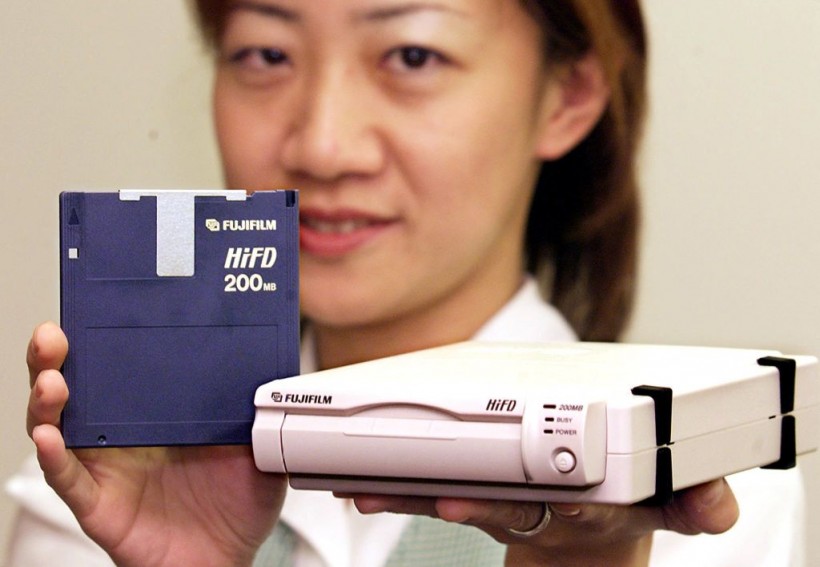Japan is moving away from mandating floppy disks for certain official documents. This signifies a significant stride toward modernization in administrative processes, historically known for their slower adoption of contemporary practices.

(Photo : YOSHIKAZU TSUNO/AFP via Getty Images)
Japan's Fujifilm unveils 200MB capacity 3.5" floppy disk HiFD and its HDR200PRDSA drive, developed by Fujifilm and Sony, at the company's office in Tokyo 28 January 2000.
Modernizing Bureaucratic Procedures.
Despite being at the forefront of technological innovation, Japan's bureaucratic machinery has been known for its slow adoption of modern practices.
However, Engadget reported that there is a notable shift as the government takes steps to eliminate the requirement for businesses to submit information on floppy disks and CD-ROMs when filing specific official documents.
This transformation gained momentum in 2022 when Minister of Digital Affairs Taro Kono advocated for the cessation of outdated physical media submissions. The Ministry of Economy, Trade and Industry (METI) has emerged as one of the pioneers in implementing this change.
Acknowledging the need for modernization, METI stated last week that the current laws have numerous provisions mandating the use of specific recording media, such as floppy disks, for application and notification methods.
This shift marks a significant stride toward streamlining bureaucratic processes and embracing contemporary documentation practices. Starting from the upcoming calendar year, METI will eliminate the obligation for businesses to furnish data on floppy disks for 34 ordinances.
The same exemption applies to CD-ROMs for an unspecified number of procedures. However, a complete cessation of the usage of either format by businesses is not imminent.
Also Read: Japan Strengthens Export Controls to Curb Military Use, Focuses on China, Russia Safeguards
The Register reported that Kono's team identified approximately 1,900 protocols spanning various government departments that still mandate the use of physical media like floppy disks, CD-ROMs, and even MiniDiscs.
These requirements extend to crucial sectors such as utility suppliers, mining operations, and companies involved in aircraft and weapons manufacturing. Despite progress in reducing reliance on outdated formats, complete liberation from their use across all industries is yet to be achieved.
Sony, the final major producer, halted their sales in 2011. Furthermore, certain data formats simply surpass the storage capacity of a floppy disk. For instance, a single photograph can easily exceed the format's 1.4MB storage limit.
Despite the decline in usage, there are still specific industries that depend on floppy disks. Some older aircraft require them for avionics, as do certain aging medical devices.
It's worth noting that the U.S. government continued to use floppy disks for coordinating nuclear weapon launches until 2019.
Japan's Main Reasons
The initiative to eliminate the use of floppy disks within government agencies is driven by two primary challenges, as reported by Japan Today.
Firstly, the reliance on physical media impedes the seamless submission and sharing of data online, creating operational inefficiencies and complicating the process of revising or updating information.
Secondly, the scarcity of floppy disks in the consumer market adds to the difficulties, as they are increasingly challenging to find for sale.
As stated in his 2022 announcement, Kono highlighted the discovery of around 1,900 government ordinances, spanning various ministries, that mandate the use of physical media for data storage.
While there is likely still a considerable distance to cover in this transition, the initiation by METI represents a significant step forward.
Related Article: Japan to Launch 5G Flying Base Stations in 2025






